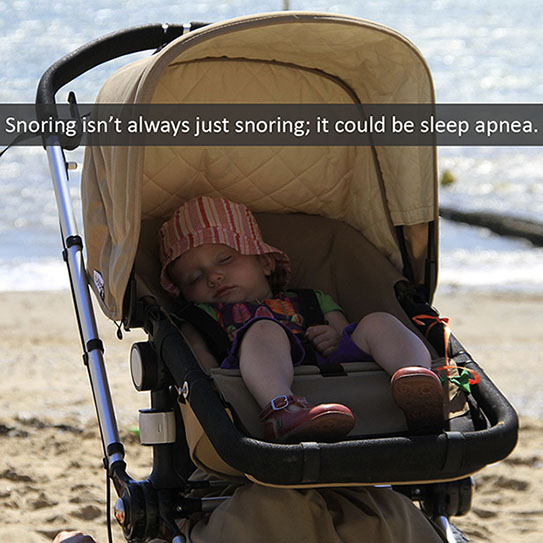A Snoring Habit Could Mean Sleep Apnea

AROUND 1 IN 5 children with a snoring habit get it from sleep apnea, a sleep disorder that causes repeated brief interruptions to breathing during sleep. This disorder, as well as being potentially life-threatening, can have serious consequences for oral health.
What Is Obstructive Sleep Apnea
Obstructive sleep apnea (OSA for short) happens when the airway is blocked, usually by the tongue and soft palate collapsing against the back of the throat, closing it off. At this point, the brain forces the person to wake up and take a breath, which can happen hundreds of times in a single night. Sleep apnea makes it very hard to get a restful night of sleep.
Sleep Apnea’s Impacts on Oral Health
How is oral health connected? Beyond the effects of sleep deprivation (irritability, hyperactivity, exhaustion, and difficulty concentrating at school), a child with sleep apnea will also be more vulnerable to oral health problems like gum disease and temporomandibular joint disorders (TMJ or TMD).
Studies have shown that when the throat relaxes in a sleep apnea episode, the jaw reflexively clenches to prevent the airway from closing off. Problems associated with TMD include pain when chewing, soreness in the jaw, chronic headaches, neck and shoulder pain, and even worn, cracked, or broken teeth.







My daughter and I love going to see Dr Aparna Sadineni and her professional staff. We never have to wait and the staff knows us like a second family. I highly recommend this office!